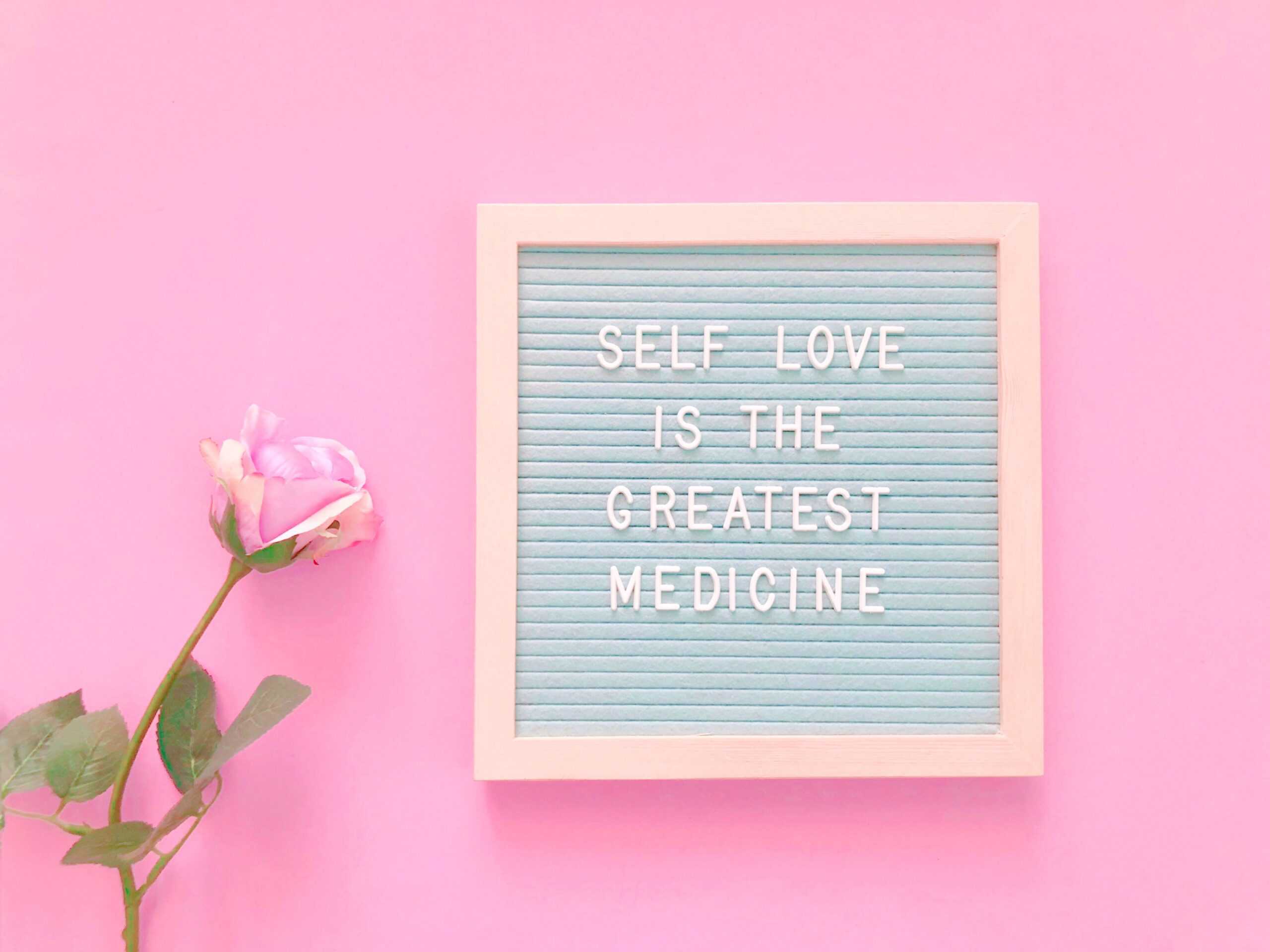Self-care is essential for well-being, though it’s often portrayed superficially on social media. True self-care goes beyond quick fixes and involves cultivating a deep, unwavering sense of self-love and self-compassion. But let’s be honest, sometimes the pressure to indulge in these grand, picture-perfect displays of self-care can leave us feeling more overwhelmed than relaxed.
Let me paint you a picture:
You’re juggling two jobs, clocking in five days a week to keep a roof over your head and food on the table for your two beautiful children. The other two days? They’re not really “days off,” are they? They’re filled with laundry, grocery shopping, cooking, cleaning, and tending to your children’s every need. Exhaustion has become your new normal. You’re constantly tired, and the thought of one more responsibility makes you want to scream.
So, you decide to jump on the bandwagon. You’re going to take some time for yourself – a ‘self-care’ day – for the next three weeks. While luxurious spa days can be beneficial, true self-care is about integrating caring practices into your everyday life. Sounds amazing, right? But here’s the million-dollar question: is this truly self-care?

The kind of self-care I want to talk about runs deeper than bubble baths, face masks, and weekend getaways (though those can be lovely additions!). It’s about cultivating a deep, unwavering sense of self-love and self-compassion.
What Does it Mean to be Compassionate Towards Yourself?

Think about it this way: a close friend just lost their beloved dog. Their heart is broken, and they’re drowning in grief. How would you react? Would you tell them to “buck up,” “it’s just a dog,” or suggest drowning their sorrows in a bottle of wine? Probably not.
Why? Because those responses lack compassion. You understand your friend is hurting and deserves the space to grieve without judgment. They are entitled to their feelings, even the messy, uncomfortable ones.
Now, I’m asking you to apply that same logic to yourself. Imagine yourself as your own best friend. Would you offer yourself the same understanding and kindness you so freely give to others?
Self-care is about turning inwards and offering yourself non-judgmental acceptance. It’s about acknowledging your feelings – the pleasant and unpleasant – with compassion and without criticism or shame.
This means:
- Noticing when you’re feeling overwhelmed, stressed, or burnt out. Don’t ignore these feelings or try to push them down. Pay attention to the physical sensations in your body, the thoughts swirling in your mind, and the emotions bubbling beneath the surface.
- Respond to these feelings with kindness and understanding. Talk to yourself as you would talk to a friend in the same situation. Accept your feelings and offer yourself words of comfort and encouragement.
- Taking steps to care for yourself, both physically and emotionally. This might look different for everyone, but it could include things like setting boundaries with work or family, saying no more often, carving out time for activities that bring you joy, or seeking professional support when needed.
Self-care isn’t about spending a fortune at a spa because you feel like you should. It’s about making conscious choices that truly nourish your mind, body, and soul – choices that align with your values and priorities.
Self-Care: It’s Not One-Size-Fits-All
Here’s the liberating truth about self-care: it’s deeply personal. What works for one person might not work for another. And that’s not only okay, it’s to be expected! We’re all unique individuals with different needs, preferences, and life circumstances. The key is to find what works for you and to be flexible enough to adapt your approach as your needs change.

If going to the spa helps you feel refreshed, re-energized, and more connected to yourself, then go for it! But if you’re going just because you feel like you should or because it’s what everyone else seems to be doing, it might be time to rethink your approach.
Let’s say you’re a therapist. Would going to the spa necessarily make you a better therapist? Maybe not. But what if you dedicated that time to learning a new therapeutic technique that could deepen your work with clients? What if you attended a workshop that expanded your knowledge base and allowed you to serve a wider range of clients? These activities, while not traditionally considered “relaxing,” could be powerful forms of self-care because they directly benefit your career and allow you to work smarter, not harder.
Self-care is about identifying what you truly need – physically, emotionally, mentally – and taking consistent, intentional steps to meet those needs. It’s about showing up for yourself with the same love, compassion, and dedication you would show to someone you care about deeply.
Self-Care: Small Steps, Big Impact
Remember, self-care doesn’t have to be complicated, time-consuming, or expensive. Here are some self-care tips aligned with principles of mindfulness and values-based living:
- Practice mindfulness. Regularly take a few minutes each day to be present in the moment. Notice your thoughts and feelings without judging or trying to change them, cultivating an ongoing mindfulness practice. Allow yourself to experience the full range of your emotions, even the uncomfortable ones. Learn how to approach negative thoughts by reading my previous post here.
- Clarify your values. Take some time to reflect on what truly matters to you. What kind of person do you want to be? What qualities do you want to embody in your relationships, your work, and your life as a whole? Use these values as a compass to guide your actions and decisions.
- Take committed action. Once you’ve clarified your values, look for small, concrete ways to put them into practice. If you value compassion, for example, you might make a point of doing one kind thing for yourself or someone else each day. If you value learning and growth, you might commit to reading a few pages of a book or trying a new skill.
- Practice self-compassion. Treat yourself with the same kindness and understanding you would extend to a dear friend. When you’re struggling or feeling down, offer yourself words of comfort and support. Remind yourself that everyone makes mistakes and experiences hardship – it’s part of being human.
- Make room for discomfort. Instead of trying to avoid or eliminate uncomfortable feelings, practice accepting them and making space for them. Acknowledge their presence without letting them control your actions. Remind yourself that feelings, no matter how intense, are temporary and will eventually pass.
These small acts of self-care might seem insignificant in the grand scheme of things, but they can make a world of difference in how you feel. When practiced consistently, they can have a ripple effect, positively impacting your mood, your relationships, and your overall well-being.
Self-Care Tips for a Healthier You
In addition to the self-care tips mentioned above, here are a few more ideas to help you cultivate a deeper sense of self-love and self-compassion:

- Practice gratitude. Take a few minutes each day to reflect on the things you’re grateful for. Write them down in a journal or share them with a loved one.
- Set realistic goals. Instead of trying to overhaul your entire life overnight, focus on making small, sustainable changes. Set achievable goals and celebrate your progress along the way.
- Learn to say no. If you’re constantly saying yes to others at the expense of your own well-being, it’s time to start setting some boundaries. Practice saying no to requests that don’t align with your values or priorities.
- Treat yourself with kindness. Pay attention to the way you talk to yourself. Are you constantly criticizing or judging yourself? Talk to the uncomfortable feelings that you have with kindness and compassion.
- Seek support. If you’re struggling with stress, anxiety, or depression, don’t be afraid to reach out for help. Talk to a trusted friend or family member, or consider seeking professional support from a therapist or counselor.
Remember, self-care is an ongoing practice. It’s not about achieving perfection or checking off a list of “shoulds.” It’s about making a commitment to yourself – a commitment to prioritize your own well-being and to treat yourself with the same love and compassion you so freely give to others.
The Bottom Line
In a world that often demands so much of us, it’s easy to get caught up in the hustle and bustle of daily life and forget to take care of ourselves. But the truth is, we can’t pour from an empty cup. If we want to show up fully for the people and things we care about, we need to make sure we’re taking care of ourselves first.
So, the next time you’re feeling overwhelmed, stressed, or burnt out, remember this: you deserve to be treated with kindness and compassion, especially by yourself. Take a deep breath, tune into your needs, and make a conscious choice to engage in self-care that truly nourishes your mind, body, and soul.
Whether it’s taking a few minutes to practice mindfulness, clarifying your values, or seeking support from a trusted friend or professional, remember that self-care is an act of self-love. It’s a way of honoring yourself and your needs, and it’s an essential part of living a happy, healthy, and fulfilling life.
So go ahead, give yourself permission to prioritize your own well-being. You deserve it.
References:
Bailey R. R. (2017). Goal Setting and Action Planning for Health Behavior Change. American journal of lifestyle medicine, 13(6), 615–618. https://doi.org/10.1177/1559827617729634
Duckworth, A. L., & Gross, J. J. (2020). Behavior Change. Organizational behavior and human decision processes, 161(Suppl), 39–49. https://doi.org/10.1016/j.obhdp.2020.09.002
Hinton, A. O., Jr, McReynolds, M. R., Martinez, D., Shuler, H. D., & Termini, C. M. (2020). The power of saying no. EMBO reports, 21(7), e50918. https://doi.org/10.15252/embr.202050918




